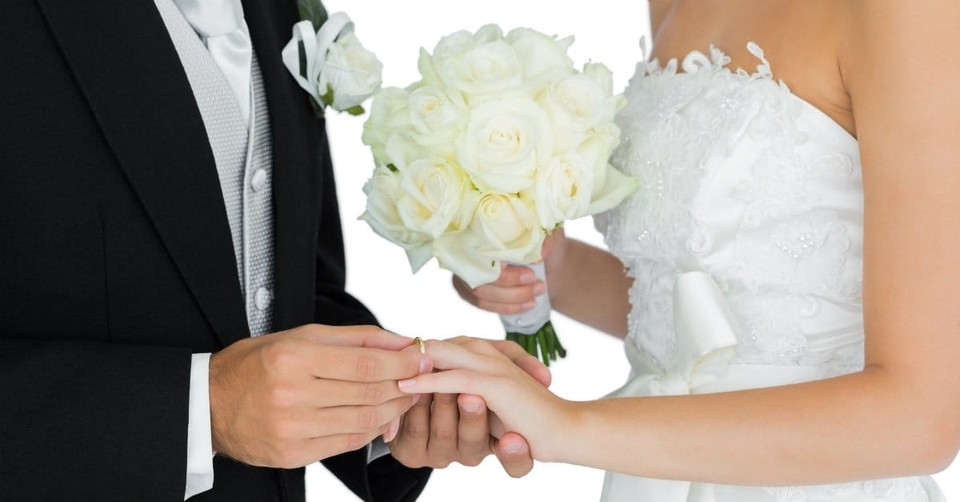Why I Won't Marry Couples Who Write Their Own Wedding Vows

Recently, a question came to me from a listener who wrote, “Dr. Moore, we are planning our wedding, and we were planning to write our own vows, but after watching the livestream of the ERLC National Conference, we noticed that you said that you don’t let couples write their own vows. Can you talk a little bit more about that, and should we rethink this?”
Okay, well, when I say this, what I am not saying is that there is some inspired, inerrant set of wedding vows. I normally use the Book of Common Prayer wedding ceremony. There is nothing that is handed down by God on golden tablets in the Book of Common Prayer. I certainly, as a Baptist, wouldn’t think that.
But what I do think the issue is, is what is the wedding. And this is the reason why I don’t let couples write their own vows when I am doing the marrying—because I think we are in a culture right now where many people assume that the wedding is the celebration of the love of the couple. Now, of course it is that to some degree, but it is so much more than that, and the main point of the wedding is about more than highlighting the individuality of the couple.
In a biblical understanding of marriage the couple is being given to one another, and there is an accountability, a public accountability for the marriage, for the wedding. That’s the reason why Jesus is present as part of the community at a wedding at Cana, and in the epistles of the New Testament the writings about marriage are not simply to the couples themselves but to the entire body of Christ. We are members of one another, and we are responsible for one another.
And so, when we are gathering together for a wedding, we have a gathering of witnesses. That’s why in the traditional Anglican wedding ceremony we gather “in the sight of God and these witnesses to join this man and this woman in holy matrimony.” The people there aren’t just guests at the party. They are people who are witnessing the vows that are being made with the implicit message there—we are representing the body of Christ to hold you accountable to these vows, to help you through these vows, to support you as you seek to keep these vows.
And when a couple writes his or her own vows, or when a couple together writes their own vows, what’s happening is that couple is suggesting somehow that their vows are unique. The
vows are not unique; as a matter of fact, as a friend of mine who is a pastor puts it often, what makes the wedding, any particular wedding, significant is not what makes it different from every other wedding but what makes it the same.
A couple starting out a wedding frankly don’t know the vows that they need to make without the rest of the body of Christ, with those who’ve gone before them. A twenty-five-year-old couple, they are not thinking about Alzheimer’s disease. They are not thinking about what happens when we find out that our small child is dying with cancer. They don’t think about what happens if one of us commits adultery and we have to work through the aftermath of that. The rest of the body of Christ is speaking of the fact that the vows you are making to one another aren’t simply when things are in conditions as they are right now, and it’s not simply when things are in conditions that you can imagine right now, but it’s in sickness and in health; for richer, for poorer; till death do us part. Those are the sorts of vows that ought to be made.
And also because what’s happening in that wedding ceremony ought to be something that is the same sort of thing that ought to happen when we baptize. The people who are gathered there who are married ought to be seeing a reenactment, in as much as possible, of what it is that they themselves have vowed to do. They are participating in this not only by witnessing these vows but also in memory of remembering and recommitting to their own vows.
So, when a couple comes to me and says we want to write our own vows, I usually say well then I’m the wrong guy to officiate at this wedding because I really think we need to think of the wedding as about much much more than that.
What’s your question? Send it to me at questions@erlc.com. Maybe there is a moral dilemma that you are facing at your work or maybe something going on in your family or maybe something you have come across in the Bible, and you are just asking how should I think this through as a Christian? Send it to us, questions@erlc.com, and I will be glad to take it up when we come back next time for Questions and Ethics.

Originally published November 13, 2014.





